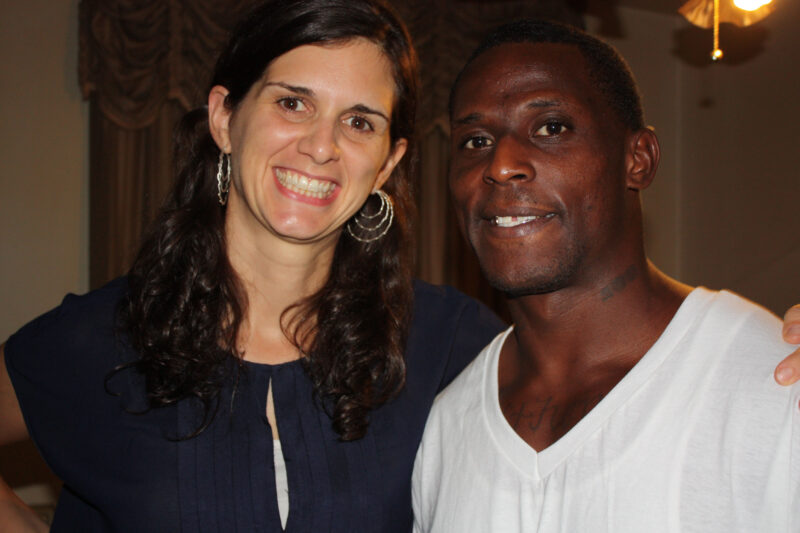
Montez Spradley is finally free. He walked out of prison late last week, after spending more than nine years behind bars — including three-and-a-half years on Alabama’s death row — for a murder he did not commit.
I began representing Montez seven years ago, not long after joining the ACLU. From the very first day that I met him, Montez maintained his innocence. No physical evidence ever tied him, a young Black man, to the 2004 murder of a 58-year old white woman in Birmingham. The prosecution instead relied on the highly tainted and inconsistent testimony of his disgruntled ex-girlfriend as well as a jailhouse snitch, who both claimed he had confessed to them.
Montez’s jurors did not want him to die. They voted 10-2 to sentence him to life, but the trial judge who presided over his first trial, Judge Gloria Bahakel, overrode their decision of life in prison and sentenced him to death, in a process known as “judicial override.” More than 20 percent of the men on Alabama’s death row have been sent there by Alabama judges, even though their juries voted for life. While Florida and Delaware still have judicial override on the books, only Alabama continues to use it with disturbing frequency. And Alabama judges almost never use override to reverse a jury’s death verdict to impose life. In fact, since 1976, death-to-life overrides have only happened nine times — and only once in the last 10 years — compared to 99 times the Montez way.
Montez was not the first innocent man to arrive to death row after a judge had overridden the jury’s life vote, and until the practice is shut down, he will not be the last. Residual doubt about a defendant’s guilt is often a major reason why a jury would vote for life. The fact that innocent people continue to be sentenced to death, especially when a jury would have spared their lives, is the very definition of a failed system.
Fortunately, in a rare victory, the Alabama Court of Criminal Appeals recognized that Montez’s first trial had been a “miscarriage of justice.” Still, it took years to untangle the web of police misconduct and judicial misconduct by Judge Bahakel that led to Montez’s conviction and death sentence.
Montez had heard rumors that his ex-girlfriend had been paid reward money, but it was not until we won his appeal, that we started to find evidence of the payments. And we learned that she had been paid an incredible sum for her testimony: $10,000. We learned that she had tried to back out before Montez’s trial and told the police that Montez had never confessed to her. Rather than honoring the truth, they dangled the $10,000 over her head and threatened to take her children away and to prosecute her for perjury if she did not “stick with her original story.”
Neither the police nor the prosecutors ever disclosed the payments to the defense. Judge Bahakel, before sentencing Montez to death, had signed off on a payment herself. Yet she never told Montez’s trial lawyers about it, and her order authorizing the payment never made it into the court file. We also knew that the lead detective on the case — the same one who authorized the payments — had lied on the stand about the ex-girlfriend’s statement to him. Unfortunately, such things are far too common in our system where the state often focuses on winning rather than justice.
Police and prosecutors are rarely held accountable for their misconduct. In fact, the lead detective on the case — the same one who lied on the stand at trial — was honored with an award from a victims’ rights group for solving this cold case that led to Montez’s arrest. No one should be rewarded for turning a blind eye to truth and justice, especially when it means an innocent person faces execution.
Montez is still a young man. More than anything, he wanted his freedom so he could be there for his children, and now he gets to be more present in their lives and watch them grow. But nothing can give him those years back, and he faces many challenges ahead.
Others have not fared as well. Innocent people, and people whose juries wanted them to live, remain on death row. For Montez and for them, it is time to reject the failed system of capital punishment.

